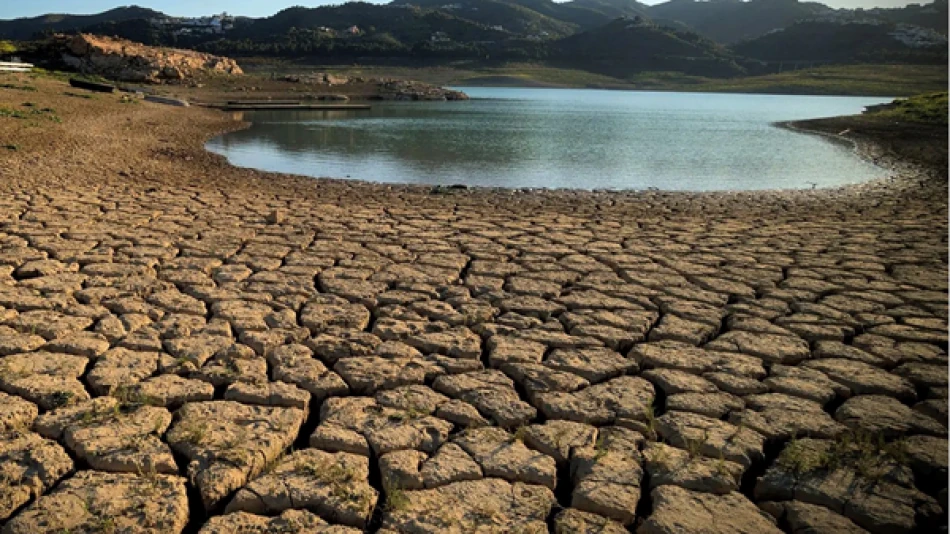
Portugal Experiences Scorching Summer and Unprecedented Drought
Portugal Records Hottest, Driest Summer Since 1931 as Climate Crisis Intensifies
Portugal has endured its most extreme summer on record, with temperatures soaring 2.09°C above historical averages and rainfall plummeting to just 24% of normal levels. The unprecedented conditions have triggered deadly wildfires and signal an alarming acceleration of climate change impacts across the Iberian Peninsula, with profound implications for agriculture, water security, and emergency preparedness across Southern Europe.
Record-Breaking Heat Shatters Nearly Century of Data
The Portuguese Institute for Sea and Atmosphere reported that average maximum temperatures reached a staggering 30.78°C this summer, marking the highest reading since systematic weather monitoring began in 1931. This represents not just a marginal increase, but a significant leap that underscores the rapid pace of regional warming.
The heat was relentless and sustained. Portugal experienced three major heatwaves, including a punishing 16-day stretch from July 29 to August 17. The town of Mora, located about 100 kilometers east of Lisbon, recorded the summer's peak temperature of 46.6°C—a reading that would be extreme even for traditionally hotter regions like the Middle East or North Africa.
June Sets the Tone for Disaster
The crisis began early, with 33 regions recording their highest-ever June temperatures. This early-season intensity created drought conditions that would persist throughout the summer, setting the stage for the catastrophic wildfires that followed.
Rainfall Collapse Creates Tinderbox Conditions
Perhaps even more alarming than the heat was the near-complete absence of precipitation. Summer rainfall totaled just 24% of the 1991-2020 average, creating the driest conditions since records began. This dramatic water deficit transformed Portugal's landscape into a continental-scale fire hazard.
The combination of extreme heat and negligible rainfall represents a climate pattern increasingly common across Mediterranean regions. Similar conditions have plagued Spain, Greece, and Southern France in recent years, suggesting a fundamental shift in regional weather systems rather than an isolated anomaly.
Deadly Wildfires Expose Infrastructure Vulnerabilities
The inevitable consequence of these extreme conditions materialized in August, when wildfires swept through northern and central Portugal. The blazes claimed four lives, injured dozens more, and consumed 254,000 hectares—an area roughly equivalent to Luxembourg.
These fires represent the deadliest natural disaster in Portugal since the catastrophic floods of 2017, which killed hundreds. The comparison highlights how climate change is diversifying the threats facing European nations, requiring adaptive strategies for both drought and flood scenarios.
Economic and Agricultural Implications
The burned area represents significant economic losses, particularly for Portugal's forestry sector, which contributes billions to the national economy through timber and paper production. The destruction also threatens Portugal's growing tourism industry, as scenic landscapes and outdoor recreation areas bear the scars of unprecedented fires.
Regional Climate Shift Demands New Strategies
Portugal's extreme summer reflects broader changes affecting the entire Mediterranean basin. Climate scientists have long predicted that this region would experience some of the most severe impacts from global warming, including more frequent droughts, intense heat, and volatile precipitation patterns.
The data from Portugal aligns with similar trends across Southern Europe. Spain has faced repeated heatwaves and water shortages, while Greece continues battling annual wildfire seasons of increasing severity. This regional pattern suggests that current emergency response and infrastructure systems may be inadequate for the new climate reality.
Water Security Becomes Critical Priority
With rainfall at just one-quarter of normal levels, Portugal faces serious questions about water resource management. Agricultural irrigation, urban water supplies, and hydroelectric power generation all face strain under such conditions. The country may need to invest heavily in desalination, water recycling, and drought-resistant agricultural practices.
Looking Ahead: Adaptation or Crisis
Portugal's record-breaking summer serves as a stark preview of Europe's climate future. The country's experience offers valuable lessons for neighboring nations and demonstrates the urgent need for comprehensive adaptation strategies.
The economic costs of climate inaction are becoming clear—from wildfire damage and agricultural losses to increased healthcare burdens from extreme heat. Portugal's challenge now lies in building resilience systems that can handle not just this year's extremes, but the even more severe conditions likely to come.
As European Union climate policies face implementation challenges, Portugal's summer provides compelling evidence that the transition to renewable energy and climate adaptation cannot happen fast enough. The alternative—measured in lives lost, hectares burned, and communities displaced—grows more expensive with each passing season.
Most Viewed News

 Layla Al Mansoori
Layla Al Mansoori






